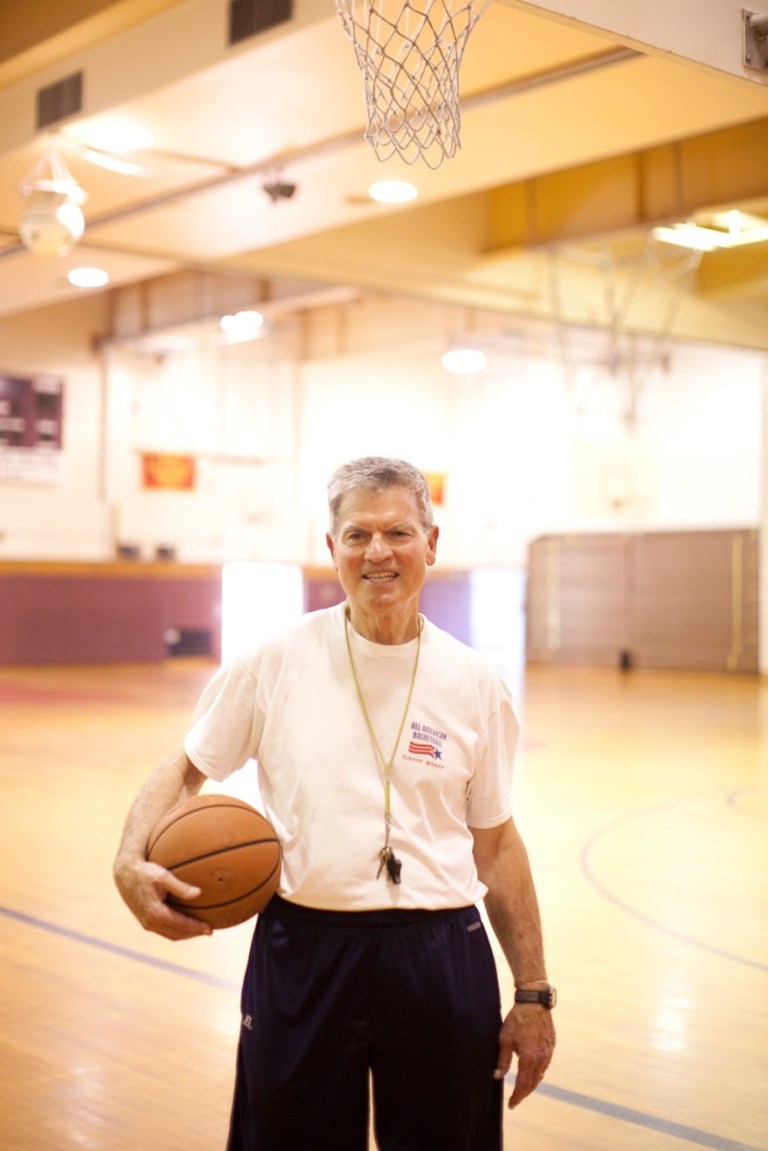
After a year away from his Long Island basketball camp, Gus Alfieri is ready to get back on the court — where he teaches much more than just a game.
Alfieri considers himself a career educator with a contagious passion for his All American Basketball Camp, which is returning to Glen Head this summer after the COVID-19 pandemic forced it into a yearlong timeout.
Besides teaching the sport, Alfieri takes the time to talk with his campers about attitude and substance abuse — something he says parents thank him for.
“If I save three kids from smoking and five kids from becoming alcoholics and seven kids from becoming drug addicts, I’m going to have a hell of a mansion up in heaven,” Alfieri said. “Because I’ve done something that no camp director does.”
Since picking up the game at 10 years old, Alfieri has earned four degrees and written two books in addition to serving as director of his camp since it started in 1969, according to the camp’s website.
This summer marks the 52nd anniversary of the program’s founding — and for Alfieri, upholding a high standard is what makes a camp stand the test of time.
“We are legendary on Long Island,” Alfieri said. “If there was a word association game and my name came up it would be associated with basketball.”
“There’s such a lack of proper fundamental teaching in basketball in particular,” he said. “There’s a lot of youth-level organizations that really don’t teach.”
Though Alfieri holds a spot as one of St. John’s University’s top 50 all-time players, he was first taught basketball and discipline by religious teachers at St. Cecilia School in Brooklyn.
“If you have a bad attitude when you’re 10 or 11 or 12, it’s not going to help you when you get to be an adult,” Alfieri said. “With discipline you can accomplish any goals.”
Alfieri compares the curriculum of summer sports camps by considering the quality of teaching and transparency presented to parents. His program “encourages” anyone to view practices unannounced.
“A lot of times camps will not let parents come in and watch them coach,” Alfieri said. “To me that’s telling a parent that they’re hiding something, they don’t trust the quality of their camp.”
Alfieri drew a comparison between coaching and working in education, noting how oversight affects the behavior of his staff.
“A lot of teachers would get very concerned when the department head comes in and watches the teacher teach,” Alfieri said. “To me when parents come on the grounds and they watch us teach, they make the camp better because the coaches are going to work just a little harder.”
In addition to having parents come and watch, Alfieri has a hiring process to bring coaches from a wide range of perspectives, but with an equal passion. For the past 40 years, he’s brought every hired coach to sit in his living room to talk for over an hour in search of a set of characteristics.
“Enthusiasm and the other is willingness to learn — if you have those two qualities you can be a good coach at a camp,” Alfieri said.
Alfieri said he understands how others may think he’s “the best thing since sliced bread.”
“But you know what? I back it up,” he said. “Everything I said we do, and if you don’t believe me come to my camp unannounced.”
“I’m very fortunate god gave me an opportunity do to things that I like,” Alfieri said. “And I’m doing them at a pretty vintage age.”
“I enjoy what I’m doing, so I’m going to keep doing it until they carry me out.”






